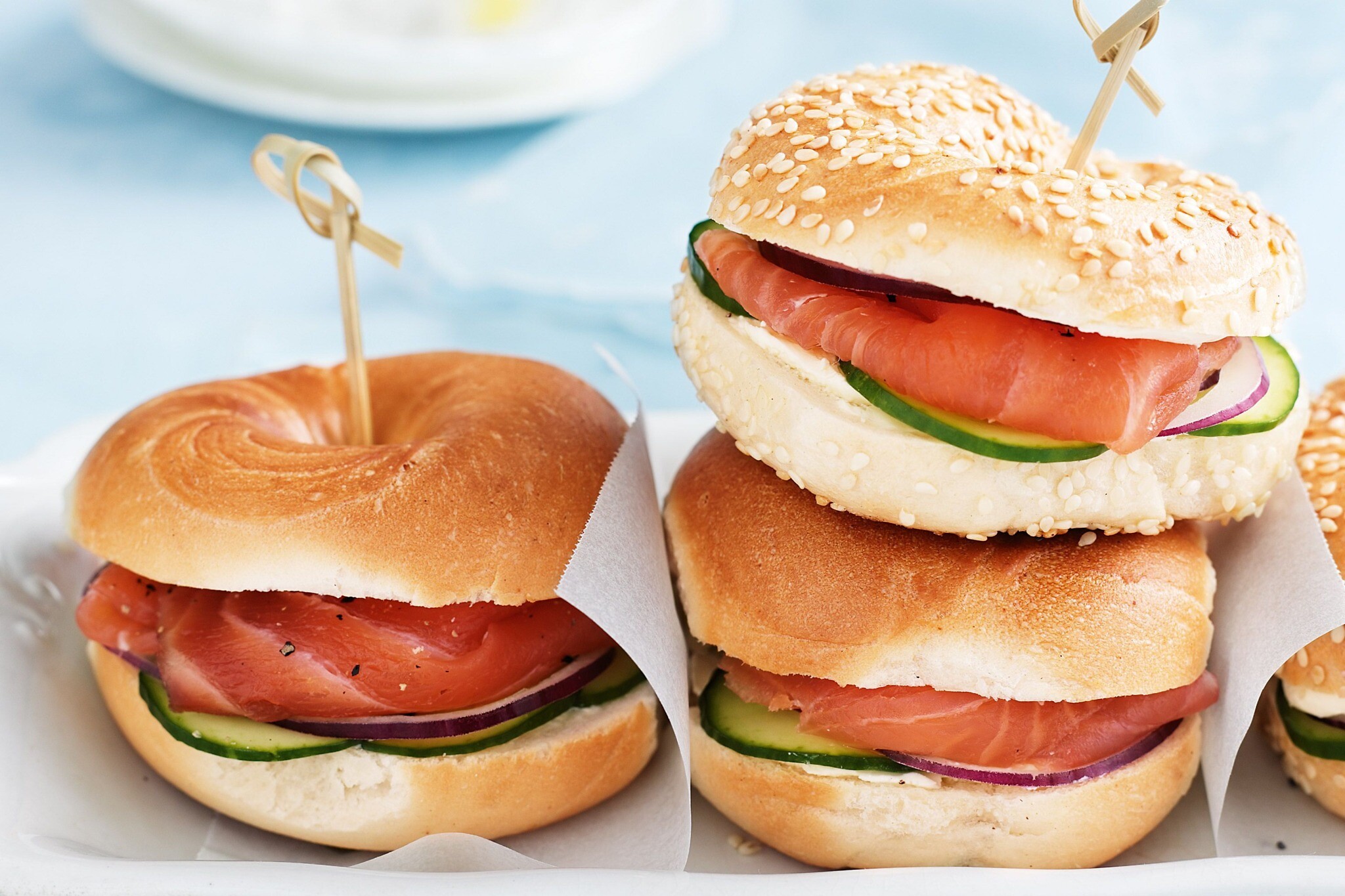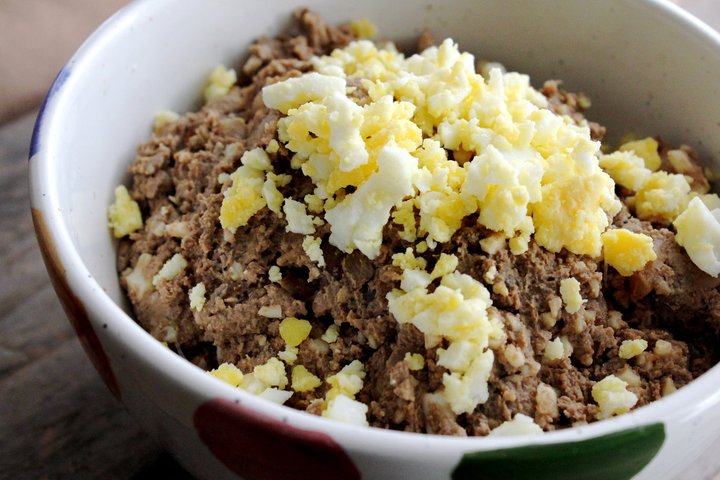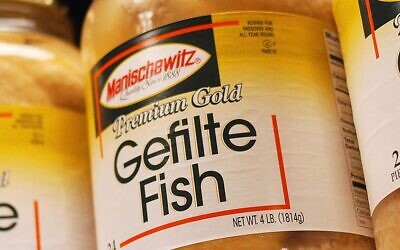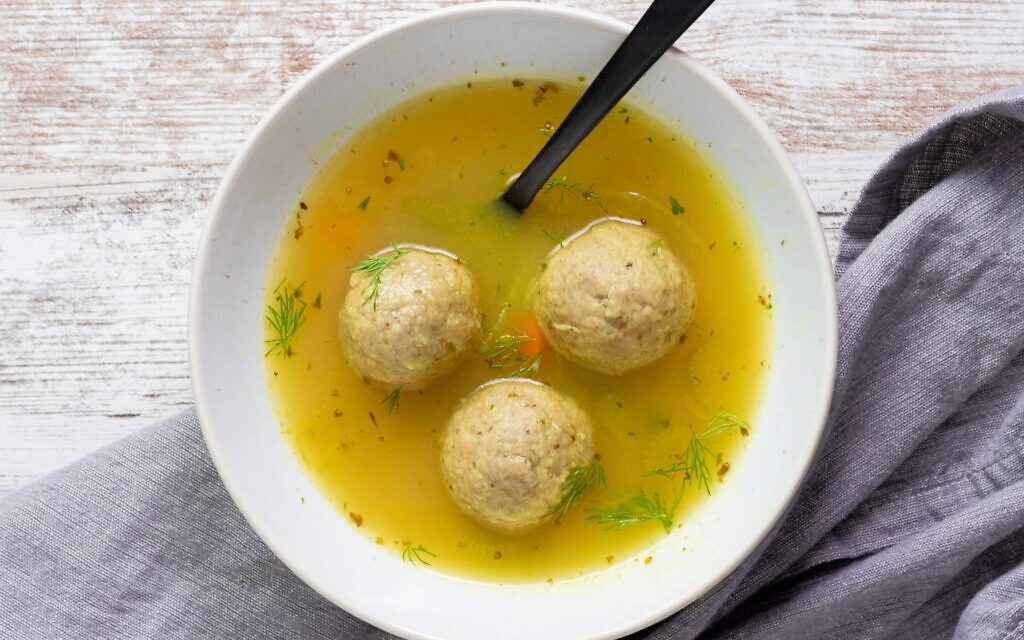Why has Ashkenazi food fallen out of fashion?
Food is the golden thread that ties our culture together but it seems that only Sephardic food is desired among Jews in 21st century Britain
“They tried to kill us, they failed, let’s eat.” It’s a well-know, Jewish saying; after all, food is the golden thread that ties our culture together, and we are about to embark on yet another festival that is all about eating – sandwiched, as it were, with 25 hours of not eating. Yet while with other ethnicities there is a celebration of the French, Spanish, Moroccan, Caribbean etc recipes that their parents or grandparents used to make, it is becoming increasingly unlikely that a British Jew of Ashkenazi origin would remember his mother or grandmother creating any of the delicacies that previous generations thrived on.
In Britain, it is now de rigeur to criticise, condemn, slate, pan, disapprove of or even slag off this form of cuisine.

Jay Rayner, in a simplistic display of wit and vinegar, explained that “the food of the Ashkenazis has been usurped by the food of their Mediterranean brothers, the Sephardim. Theirs is a culinary tradition full of sunlight and warmth and zest and life, rather than dead things and chicken fat.”
Get The Jewish News Daily Edition by email and never miss our top stories Free Sign Up
Yotam Ottolenghi told us that when he was a child, “sweet, grey and smeared with gelatinous gunk, gefilte fish was perceived as a typical remnant of the old Ashkenazi world that was best left behind in Europe.”

In essence they are saying that Ashkenazi food is the food of the pogroms and the Holocaust. That it is time we forgot the 300-year period of Jewish history that was ended some time between 1940 and 1945. Farewell to Sholom Aleichem, Marc Chagall, and Sigmund Freud. “Best left behind in Europe,” said the man who lives in Camden, some miles away from Tel-Aviv. I suppose after Brexit, Camden is not in Europe.
Many Jewish writers tell us with pride how they turn their back on heimishe cooking, having been force-fed chopped liver as a child, or talk about the horrors of the pickled cucumber. Snobbery and assimilation thrive.

This has led to what is, in effect, a boycott of the cuisine. JW3, a cultural centre for north London Jews, had an Israeli-style restaurant which was an Ashkenazi desert (but did have pizzas and salad niçoise), and recipes for heimishe meals are as rare as hen’s teeth even in this paper. We are excited about top Israeli restaurants, but ignore the fact that they are not kosher.
British Ashkenazi Jews in particular seem to feel an embarrassment when reminded of their eastern European past. In their aspirations to be more and more middle class they don’t like being reminded of uncle Hymie the tailor from Stepney, who died of a coronary after a lifetime of imbibing schmaltz. As in Job: “It is as though we were born yesterday”.

To be fair, it is now more than a century since their grandparents failed to make it to the Goldeneh Medinah and ended up in Whitechapel or Cheetham Hill. Their children eventually moved to the suburbs; how could a second or third generation Jew be nostalgic about Bury or St John’s Wood? Secular Yiddish civilisation is dead in Britain.
So nostalgia about the food also dies, and as a result there are many foods and recipes that have nourished our souls in the past that are now fast fading into the fog of time, allowing those who have a reason (whether it is a grudge, good business, or just good column inches) to deny the heritage.
 Of course some recipes deserve to die; the garlic-ridden calves foot gel called fisnogge or ptcha was at best an acquired taste, and the imported jars of so-called gefilte fish that bears no relation to anything of pescatarian origin give ammunition to the sceptics.
Of course some recipes deserve to die; the garlic-ridden calves foot gel called fisnogge or ptcha was at best an acquired taste, and the imported jars of so-called gefilte fish that bears no relation to anything of pescatarian origin give ammunition to the sceptics.
The kosher restaurants in Britain do not help either. Assuming you can find one, what you get is lukewarm, tasteless chicken soup with kneidlach that could have been used at Trafalgar for cannonballs, and instead of the generous portions that you get in New York, a salt beef sandwich is a thin crumbling layer of meat surrounded by a brick of bread but at New York prices.
How then do we come back from this perilous state?
I think that the time has come to stop insulting our own heritage. I would not for a moment consider being rude about the opulent and tasty recipes that abound from the Sephardi or Mizrahi kitchens (I make a mean shakshuka), but I see no reason why some Jewish food writers see an open season on Ashkenazi cuisine. They should be ashamed of themselves.
 As it has been written: “A man or woman who is not touched by the earthy lyricism of hot pastrami, the pungent fantasy of salt beef and pickles, is a person of stone and without heart.” The tang of the herring, the comfort of the cholent, the experience of the chopped liver, let alone the enchantment of a beigel packed with quality smoked salmon, are part of the experience of Ashkenazi cuisine. Even vegans can delight at the crunch of the latke or the sweetness of the tzimmes.
As it has been written: “A man or woman who is not touched by the earthy lyricism of hot pastrami, the pungent fantasy of salt beef and pickles, is a person of stone and without heart.” The tang of the herring, the comfort of the cholent, the experience of the chopped liver, let alone the enchantment of a beigel packed with quality smoked salmon, are part of the experience of Ashkenazi cuisine. Even vegans can delight at the crunch of the latke or the sweetness of the tzimmes.
 The Americans are showing the way. With organisations like YIVO and writers like Liz Alpern and Jeffrey Yoskowitz (Gefilteria), Michael Twitty (author of Kosher Soul), they have shown how the recipes of the 19th century can be updated with the ingredients and cooking methods of the 21st century, while respecting those we have come to love. Twitty says: “We need to remind people of both the historical truth but also the absolute joy we take in celebrating who we are and keeping the memories of people who brought us here alive and giving something to our children in perpetuity.” One way to do that, he believes, is through cooking: “Food is how we say we belong.”
The Americans are showing the way. With organisations like YIVO and writers like Liz Alpern and Jeffrey Yoskowitz (Gefilteria), Michael Twitty (author of Kosher Soul), they have shown how the recipes of the 19th century can be updated with the ingredients and cooking methods of the 21st century, while respecting those we have come to love. Twitty says: “We need to remind people of both the historical truth but also the absolute joy we take in celebrating who we are and keeping the memories of people who brought us here alive and giving something to our children in perpetuity.” One way to do that, he believes, is through cooking: “Food is how we say we belong.”
Even in Britain organisations like the Jewish Vegetarian Society show that you can be heimishe and vegan.
The answer, in the end, lies with us, and in the home. It is in our own hands to re-create the dishes that so delighted our forefathers and foremothers. Light, fluffy gefilte fish balls infused with parsley? You bet!

Thank you for helping to make Jewish News the leading source of news and opinion for the UK Jewish community. Today we're asking for your invaluable help to continue putting our community first in everything we do.
For as little as £5 a month you can help sustain the vital work we do in celebrating and standing up for Jewish life in Britain.
Jewish News holds our community together and keeps us connected. Like a synagogue, it’s where people turn to feel part of something bigger. It also proudly shows the rest of Britain the vibrancy and rich culture of modern Jewish life.
You can make a quick and easy one-off or monthly contribution of £5, £10, £20 or any other sum you’re comfortable with.
100% of your donation will help us continue celebrating our community, in all its dynamic diversity...
Engaging
Being a community platform means so much more than producing a newspaper and website. One of our proudest roles is media partnering with our invaluable charities to amplify the outstanding work they do to help us all.
Celebrating
There’s no shortage of oys in the world but Jewish News takes every opportunity to celebrate the joys too, through projects like Night of Heroes, 40 Under 40 and other compelling countdowns that make the community kvell with pride.
Pioneering
In the first collaboration between media outlets from different faiths, Jewish News worked with British Muslim TV and Church Times to produce a list of young activists leading the way on interfaith understanding.
Campaigning
Royal Mail issued a stamp honouring Holocaust hero Sir Nicholas Winton after a Jewish News campaign attracted more than 100,000 backers. Jewish Newsalso produces special editions of the paper highlighting pressing issues including mental health and Holocaust remembrance.
Easy access
In an age when news is readily accessible, Jewish News provides high-quality content free online and offline, removing any financial barriers to connecting people.
Voice of our community to wider society
The Jewish News team regularly appears on TV, radio and on the pages of the national press to comment on stories about the Jewish community. Easy access to the paper on the streets of London also means Jewish News provides an invaluable window into the community for the country at large.
We hope you agree all this is worth preserving.
-
By Laurent Vaughan - Senior Associate (Bishop & Sewell Solicitors)
-
By Laurent Vaughan - Senior Associate (Bishop & Sewell Solicitors)
-
By Laurent Vaughan - Senior Associate (Bishop & Sewell Solicitors)
-
By Laurent Vaughan - Senior Associate (Bishop & Sewell Solicitors)






















